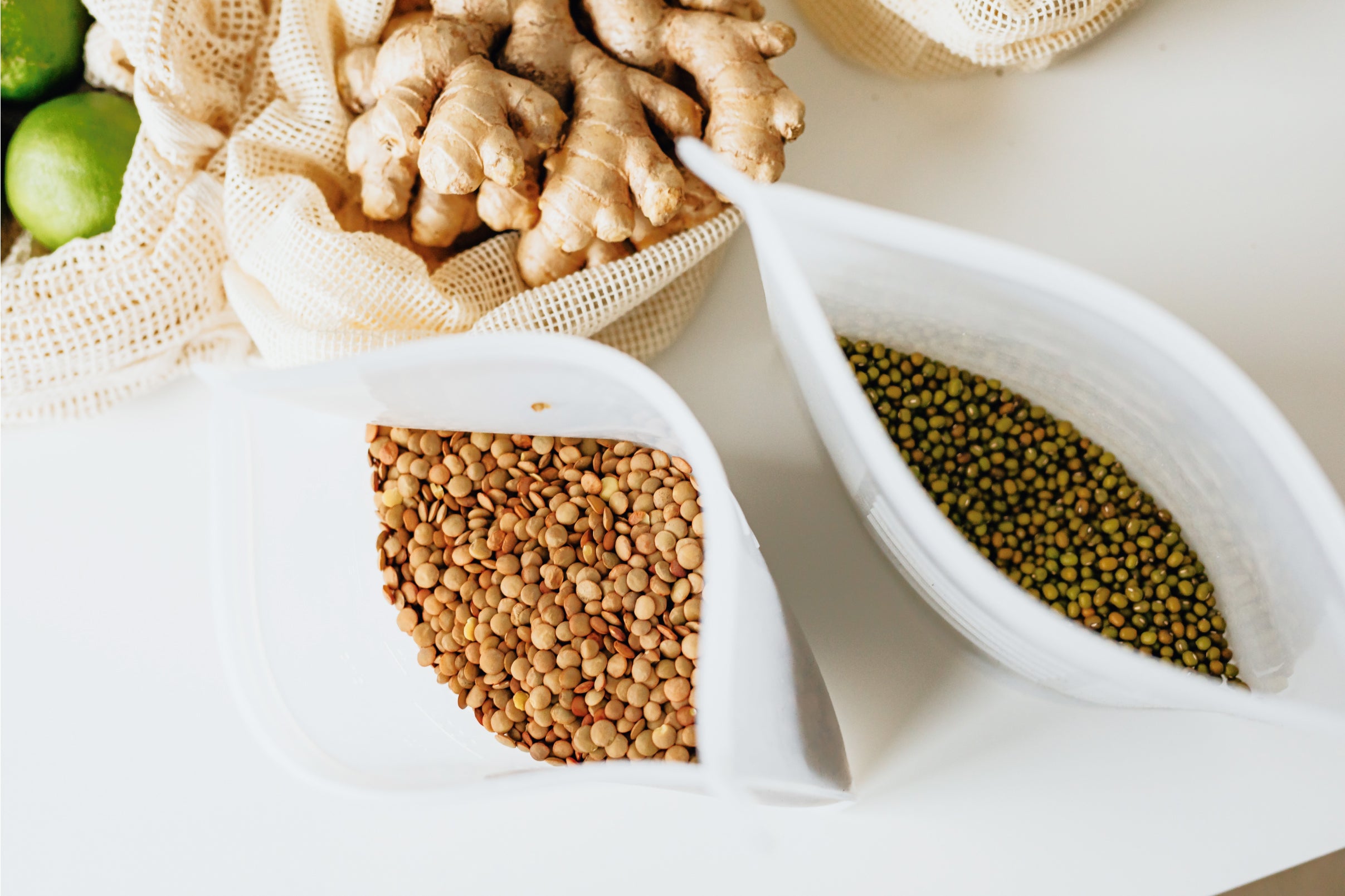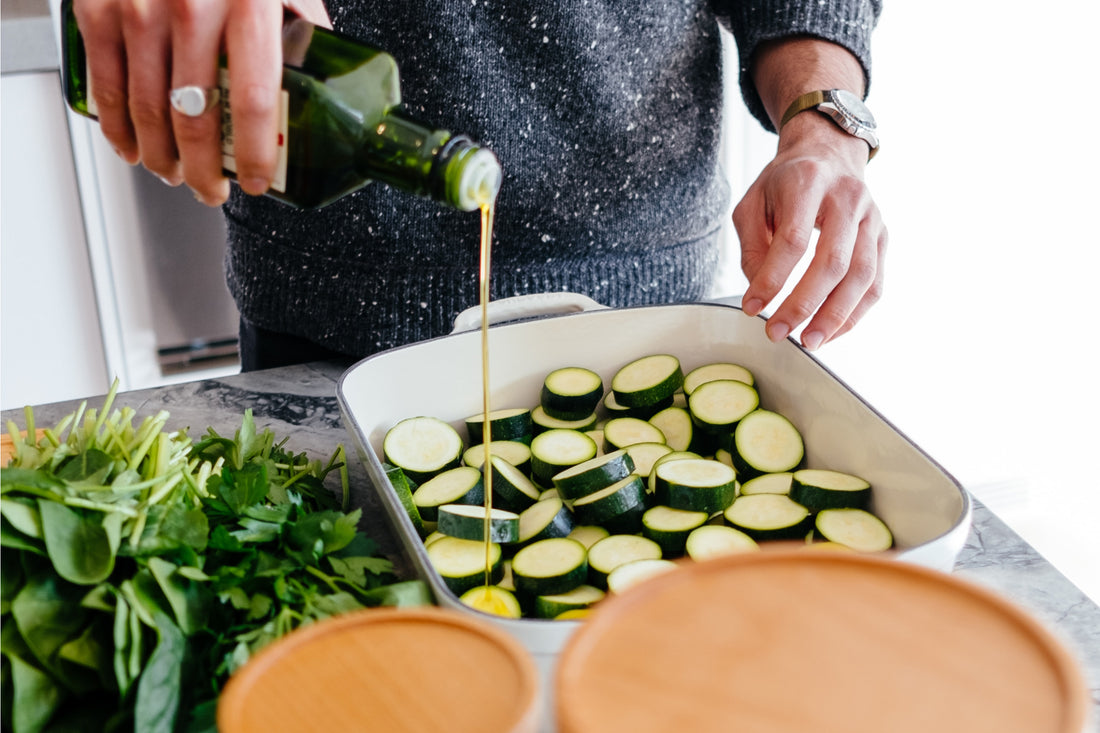Your health is directly related to what you put into your body. Have you ever heard of the phrase: “You are what you eat”? Foods such as processed grains like white rice and refined sugar have been found to cause conditions such as diabetes and constipation.
When food gets broken down within the body, it forms two types of substances: acidic or alkaline. Food substances that produce acidic metabolites are known as acidic foods, while those producing alkaline by-products are known as alkaline foods.
The Effects of Acidic Food on the Body
Acidic foods lower the gut's pH, resulting in severe consequences on various organs within the body.
High acid content within the gut can cause conditions such as:
Heartburn
This is often triggered by increased acid production in the stomach due to ingesting acidic foods.
Acid Reflux
Acid Reflux is a common condition caused by regular and excessive consumption of foods rich in acid. It occurs when acid goes back through the esophagus, irritating the lining.
GERD
GERD, Gastroesophageal disease, is a more severe form of acid reflux. It’s a chronic digestive disease marked by symptoms such as difficulty in swallowing, heartburn, chest pain, and regurgitating food or chyme, a liquid form of digested food.
14 Acidic Foods to Avoid
 Photo by Karolina Grabowska from Pexels
Photo by Karolina Grabowska from Pexels
Acid value 1-4
Here are some examples of foods with a pH level ranging from 1-4 that you should try and avoid:
Soft drinks
Soft drinks are extremely rich in phosphoric acid. High soda intake is linked to health issues such as kidney issues and pre-diabetes.
Red meat
Red meat, a standard item in most western diets, is rich in protein and phosphorus. These two substances are likely to increase your acid levels due to the formation of phosphoric acid.
Dairy
Dairy products such as milk, butter, and cheese are notorious for having a high mineral content. These include phosphorus and calcium. These two minerals contribute to increased acid in the gut.
Processed grains
Processed grains, also known as refined grains, contribute to high acid levels in the gut. These grains can be traced in food items such as white bread and baked goods like cake.
Alcohol
Another food item rich in acid-forming products is alcohol. Alcohol, when ingested, stimulates the production of acid in the stomach. The increased production of acid, in turn, contributes to heartburn and damages the stomach’s lining.
Spicy foods
Foods such as chilies, curries, and other sauces usually have a pH value ranging from 2 to 4. These items increase the production of acid in the stomach, leading to heartburn. Consequently, the lining in your stomach and gullet continues to degrade.
Tomatoes
Tomatoes are highly acidic and are among the significant causes of heartburn. You should avoid eating them too often because regular heartburns aren’t healthy for your stomach and esophageal lining.
Tomatoes trigger an increase in acid production in the stomach, which, when left unchecked can lead to gastroesophageal reflux disease. This is a condition caused by stomach acid frequently flowing back through your gullet.
Caffeine and caffeine beverages

Photo by Gary Barnes from Pexels
Drinks like coffee, tea, and even energy drinks are all significant causes of heartburn. Excessive consumption of these drinks over a long period may cause GERD and stomach ulcers due to the overproduction of stomach acid.
Acid value 5-6
Fried Foods
Fried foods such as chicken nuggets, fries, and cheese sticks are contributing factors to the development of GERD. The high-fat content in these foods causes an increase in stomach acid production, leading to regurgitation, causing heartburn.
Onions and Garlic
Onions have a higher ph level compared to garlic. Onions, especially red ones, range from 5.3 to around 5.8, while garlic has a more steady value at 5.8. People with acid reflux are advised to lay off onions since they may cause heartburn.
Artificial Sweeteners
You should be wary of artificial sweeteners like corn syrup because they tend to contribute to the development of acid reflux disease or exacerbate symptoms in those who already have the condition. It’s best just to avoid them altogether.
Vinegar
Acetic acid, a compound found in vinegar, is responsible for its acidic properties. Vinegar has a pH value within the 2-3 range. Therefore, you should be extra cautious about consuming it. Excessive consumption may lead to gastrointestinal conditions such as heartburn, or worse, acid reflux.
Blueberries
This may come as a surprise, but blueberries are some of the acidic fruits you should avoid. They have a pH value of about 4.1; that’s relatively strong, so it would be best to substitute them with other berries instead.
Seafood
Fish such as haddock and sardines are acidic and contribute to raised acid pH levels in the gut. The same applies to shellfish such as oysters, mussels, and scallops.
Healthier Alternatives to Acidic Foods
 Photo by Ella Olsson from Pexels
Photo by Ella Olsson from Pexels
Below are some healthy alternatives to consider if you want to substitute acidic foods. Alkaline foods are excellent examples. They have a pH value ranging from 7.5-14.
Nut milk
Nut milk such as almond and cashew are healthier alternatives to cow's milk; they have less acidifying qualities than regular milk.
Coconut milk
Another alternative to milk is coconut milk. It has benefits such as Low-density lipoproteins and minerals such as potassium. Coconut milk is also alkaline, a good substitute for acidic foods.
Coconut oil instead of vegetable oil
Vegetable oils such as sunflower seeds have acidifying qualities in the blood, so a better alternative is coconut oil. It’s healthier and withstands high temperatures.
Non-gluten grains
Grains such as buckwheat, quinoa, and brown rice are better alternatives to wheat and white rice. They are less acidifying than regular grains.
Swap artificial sweeteners for raw honey and or maple syrup
Raw honey makes a great substitute for artificial sweeteners, which possess acidifying qualities.
Organic Free Range Meat Products
They are more nutritious and have less inflammatory effects. Elk or bison meat are some excellent substitutes for beef and chicken.
Alkaline Water

Alkaline water makes an excellent substitute for soft drinks. A DYLN water bottle provide just that. The VitaBead Diffuser at the bottom of the bottle alkalizes the water for you while the insulation keeps your water cold.
Green Tea
Coffee is a highly acidic food substance; green tea makes a good substitute for it. It has less acidifying properties.
Fresh fruit
Swapping soft drinks with fresh fruit juice is a much healthier substitute for fizzy drinks. Fresh fruit juice is rich in alkaline properties.
Stevia
Stevia is an artificial sweetener with alkaline properties. It’s the perfect substitute for refined sugar and doesn’t have harmful effects on the body, unlike refined sugar linked to diabetes.
Parting Shot
The foods we eat have a direct impact on our general wellbeing and health. When food is broken down during digestion, it forms two components: acid or alkaline. These substances influence the pH value of your gut.
Acidic foods have acidifying components that lower the body’s immunity, making it more susceptible to diabetes and other diseases. They include coffee, fizzy drinks, and spicy foods.
Swapping them with healthier alternatives such as alkaline water, nut milk, and non-gluten grains such as quinoa helps boost your body’s immunity.






